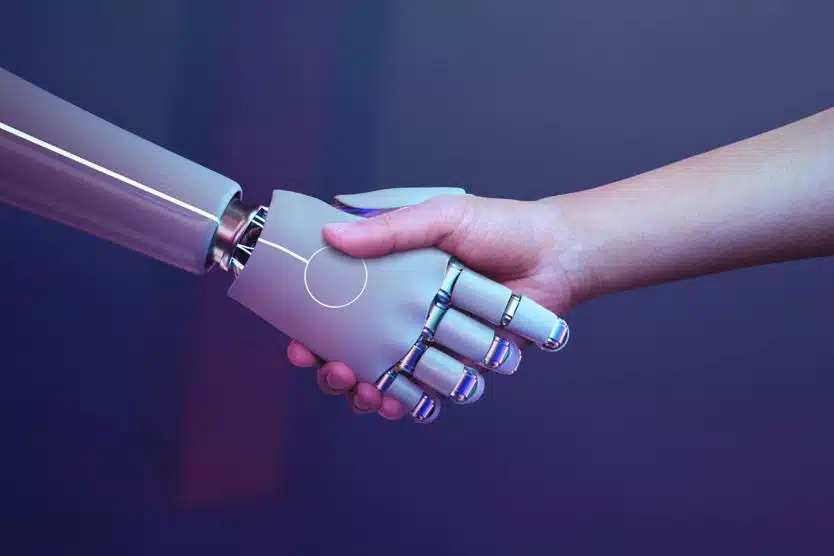
The intersection of artificial intelligence (AI) and coding is sparking a new era of possibilities in the tech world. AI advancements are improving how we code, shaping the future of software development, and empowering the next generation of developers.
So, let’s explore ten ways AI is revolutionizing coding and its implications for the future.
AI-powered tools are transforming how developers write code by automating repetitive tasks. Emerging platforms use AI to suggest code snippets, enabling developers to focus on solving complex problems rather than spending time on boilerplate code. This speeds up development cycles and allows programmers to allocate more time to creative and strategic aspects of their projects.
AI excels at detecting patterns and anomalies, making it a powerful ally in identifying bugs and errors in code. Tools leveraging AI provide real-time error detection, suggesting fixes as developers work. This not only reduces debugging time but also improves the reliability of software, enabling faster delivery of robust applications to market.
Maintaining clean, efficient, and readable code is crucial for scalability and long-term project success. AI simplifies this process through tools designed to refactor code intelligently, optimizing it for performance and clarity. For instance, AI can streamline algorithms, improve structure, and even suggest better coding practices, ensuring that software remains maintainable over time.
AI is playing a significant role in crafting future innovators by tailoring learning experiences to individual needs. For example, teachers can leverage AI to incorporate personalized approaches to coding education, adapting lessons to a student’s skill level and progress. With interactive and customized learning paths, aspiring coders can stay motivated and empowered throughout their learning journey.
AI-driven predictive analytics help developers anticipate system requirements, foresee potential issues, and optimize project timelines. These tools analyze historical data to identify patterns, offering valuable insights into resource allocation and risk management. Predictive analytics are particularly beneficial for enterprise-level software projects, where efficiency and accuracy are critical.
Natural Language Processing (NLP) is bridging the gap between human language and programming by enabling AI to translate plain language descriptions into executable code. This technology makes coding more accessible to non-programmers, lowering entry barriers and democratizing software development. Even individuals without less programming experience can contribute to software creation with NLP advancements.
Cybersecurity is a growing concern in today’s digital world, and AI is stepping up to safeguard systems against threats. By analyzing patterns and detecting anomalies, AI-powered tools can identify vulnerabilities and prevent cyberattacks in real-time. This proactive approach ensures that software remains secure throughout its lifecycle, setting a new standard for coding practices.
Low-code and no-code platforms are becoming more powerful, thanks to AI integration. These tools allow individuals with limited technical expertise to create functional applications, while experienced developers can use AI to enhance customization. This balance makes coding more inclusive and fosters innovation among startups and small businesses.
Software testing and deployment are critical stages in the development process. AI is revolutionizing these phases by automating quality assurance, reducing manual intervention, and increasing testing accuracy. Continuous integration and deployment (CI/CD) pipelines now rely heavily on AI-driven tools to ensure smooth and reliable releases.
Collaboration is critical to successful coding projects, and AI is enhancing teamwork with tools designed for version control, shared knowledge, and efficient communication. Integrating AI into collaborative platforms allows development teams to work more cohesively, regardless of location. These advancements streamline workflows and promote a more dynamic coding environment.

As AI evolves, its impact on coding and software development will grow stronger. From simplifying code generation to enhancing cybersecurity, AI is reshaping the programming landscape in ways that were once unimaginable.
Understanding AI's potential is crucial for young learners. Engaging in coding classes for kids ensures that the next generation is equipped with the tools and skills needed to thrive in an AI-driven world. Similarly, exploring AI courses helps developers and enthusiasts stay ahead of the curve while addressing critical considerations like ethics in AI applications.
Addressing ethical considerations is paramount as AI becomes integral to coding and software development. AI systems often make decisions based on the data they are trained on, which can sometimes lead to unintended biases or errors. Understanding these challenges is essential for coders to ensure fairness, transparency, and accountability in applications where AI ethics are a concern.
Key ethical concerns in AI coding include:
At Real Programming 4 Kids, we believe in preparing for an AI-powered future. Through tailored lessons and interactive programming experiences, we empower students to be leaders in this exciting new era. Ready to start your journey? Explore how RP4K can help you unlock your potential in coding and AI.